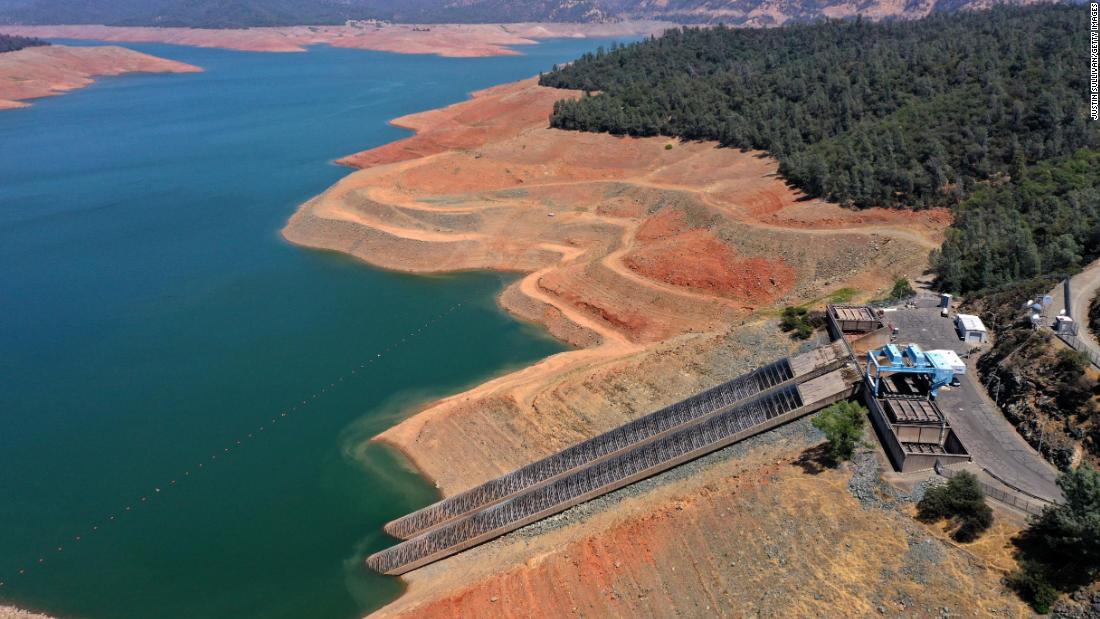California hydropower plant forced to shut down as water levels fall at Lake Oroville
The decision to shut down the Edward Hyatt Power Plant at Lake Oroville — the state’s second-largest reservoir — comes after drought and heat exacerbated by the climate crisis caused lake water levels to plunge to all-time lows.
“This is just one of many unprecedented impacts we are experiencing in California as a result of our climate-induced drought,” California Department of Water Resources Director Karla Nemeth said Thursday in a news release. “California and much of the western part of the United States are experiencing the impacts of accelerated climate change including record-low reservoir levels due to dramatically reduced runoff this spring.”
The Hyatt Power Plant is the fourth-largest hydroelectric energy producer statewide, according to the California Energy Commission, with the ability to power up to 800,000 homes when operating at full capacity. About 13% of the state’s electricity was generated by hydroelectric power plants as of 2018.
Officials had previously warned that the power plant could be forced to shut down, saying it would be taken offline if the reservoir fell below roughly 630 to 640 feet above mean sea level. As of Thursday, the lake sat at just 641 feet. The previous low of 643 feet was set in 1977.
More than 95% of the American West is in some level of drought, and seven states — California, Idaho, Montana, Nevada, North Dakota, Oregon and Utah are entirely in drought.
“Exceptional drought” covers more than 46% of California — the most seen since 2015 — according to the US Drought Monitor. It’s one of the state’s worst droughts, exacerbating wildfires and prompting California regulators this week to vote to restrict water access for thousands of Central Valley farmers (That order, expected to go into effect August 16, still faces administrative requirements.)
Regarding the power plant shutdown, the DWR had “anticipated this moment, and the state has planned for its loss in both water and grid management,” Nemeth said in the news release.
While the agency will continue to focus on water preservation efforts at the reservoir, officials urged Californians to conserve water as much as possible to help limit additional shutdowns. In the past, they’ve recommended curtailing water use by taking shorter showers, fixing leaks at home and reducing outdoor landscape watering.
“We are calling on everyone to take action now to reduce water use by 15 percent, to preserve as much water supply in storage as possible should we experience another dry year,” Nemeth’s statement said. “We are all in this together.”
CNN’s John Keefe, Rachel Ramirez and Angela Fritz contributed to this report.
![]()


